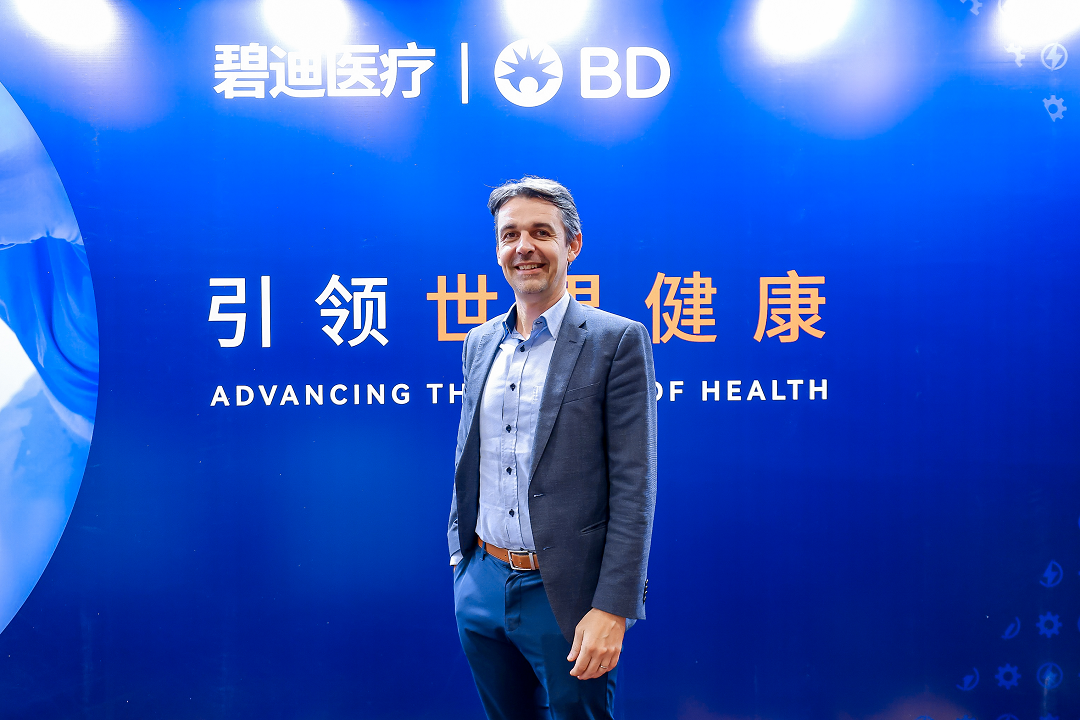In the fast-paced business environment of today, growth is not just a goal; it’s a necessity. Companies are striving to scale up quickly, and this requires a blend of efficiency and agility. At the same time, the nurturing of talent within organizations is a marathon, not a sprint. It’s about building talent pipelines and enhancing capabilities for the long haul.
HR professionals are at the forefront of this challenge. They must ask themselves: How can we support rapid organizational growth through strategic organization and talent initiatives? What’s the best way to align HR practices with the broader corporate mission to drive growth?
Take BD, for example, with its 127-year legacy of global operations. The company has mastered the art of balancing rapid expansion with the steady development of its talent pipeline. BD’s approach is a testament to the belief that HR should be in lockstep with both business operations and the corporate value proposition. While some may look to external recruitment as a quick fix for talent needs, BD’s strategy focuses on tapping into the wealth of internal talent, aligning individual growth with the company’s DNA for more sustainable outcomes.

Norbert Modla, VP of Human Resources at BD Greater Asia, puts it succinctly: “HR’s role is to be both the custodian and catalyst of the corporate value proposition. It’s about driving growth and prioritizing the development of our people, providing them with opportunities to unlock their potential.”
Securing the Foundation for Corporate Growth
The value of HR extends beyond meeting immediate business goals; it’s about laying the groundwork for long-term growth.
Aligning with Corporate Values
In today’s HR landscape, a business-centric mindset isn’t just beneficial—it’s imperative. Norbert Modla of BD highlights this, stating, “HR must not only align with business operations but also spearhead the reinforcement of the corporate value proposition and the organization.” This is about fostering a harmonious relationship between business practices and the company’s foundational values.
HR’s mandate is to craft a strategic framework that equips business leaders with the insights to actualize the corporate value proposition and the organization’s current state. This process is akin to a mutual journey of empowerment and support, reminiscent of the meticulous preparation required for an ascent of Mount Everest. Organizations must have a clear understanding of the competencies, structures, and personnel necessary to achieve their objectives.
At BD, this principle is integral to the Annual Strategy Review. Within this framework, HR leads a Strategic Organization Planning initiative, which includes an evaluation of organizational capabilities and structure, an assessment of the alignment of talent with leadership and pivotal value-driving roles, and the determination of suitable organizational and personal development measures. These steps ensure that the organization is not only equipped but also fully supported in meeting its ambitious goals. This exemplifies BD’s dual role in adapting to and guiding the business forward.
Strategic Plans and Knowledge-Action Alignment
Understanding the importance of guiding the corporate value proposition, it’s essential to develop strategic plans that are both actionable and measurable.

Grace Wu, VP of HR, Corporate Communication & Digitalization for Greater China, shares insights on BD’s approach: “We’ve developed key action plans that align with our business strategy, such as the GMGM and BAP programs, which are designed to cultivate leaders and talent capable of meeting future business challenges.”
Leveraging Internal Talent
Talent is the bedrock of corporate stability and growth. HR’s role is to enhance talent solutions, maximizing the value of existing talent and building a robust pipeline.
In today’s rapidly changing landscape, the focus on internal talent development is paramount. As highlighted in the Harvard Business Review, this approach not only improves job satisfaction and engagement but also provides executives with diverse perspectives on critical tasks, aligning with BD’s talent management philosophy.
Grace Wu emphasizes, “At BD, we’re dedicated to unlocking the potential of our internal talents, identifying and nurturing individuals who embody BD’s DNA.”
Emphasizing internal talent development is not synonymous with a narrow focus. It’s about striking a balance between nurturing in-house capabilities and remaining receptive to the evolving demands of the business landscape. BD approach to talent acquisition, is one that is inclusive of diverse and cross-industry expertise. Norbert Modla underscores this strategy with an example from the Asia Pacific region, where BD advocated for candidates for a regional leadership role with different experience and skillsets from a broad spectrum of industries, purposefully excluding conventional MedTech or healthcare sectors. This approach is designed to enrich the organization’s talent pool, ensuring a versatile and future-ready workforce that can navigate the complexities of long-term development in a multifaceted business environment.
Focusing on the Employee Value Proposition (EVP)
Creating an optimal environment for employee development involves a strong focus on the EVP, which includes both tangible and intangible values. BD’s comprehensive welfare strategies and corporate culture initiatives are designed to maximize team efficiency and individual innovation.
By continually enhancing the EVP and fostering a supportive environment, BD aims to attract and retain top talent, driving innovation and success. The company’s high employee engagement scores reflect the effectiveness of these strategies.
The data speaks for itself: BD maintains impressive levels of employee engagement, with retention intention scores reaching 87 and recommendation intention scores at 83. This virtuous cycle of satisfaction and commitment contributes significantly to BD’s sterling corporate reputation.
In conclusion, long-term talent strategies and implementation systems are crucial for achieving corporate growth goals. BD’s commitment to innovative HR management practices is paving the way for a sustainable, future-oriented organization.
Article Source: Harvard Business Review